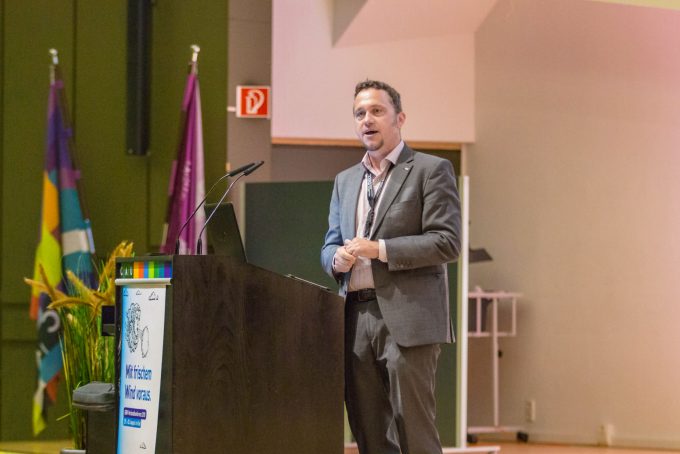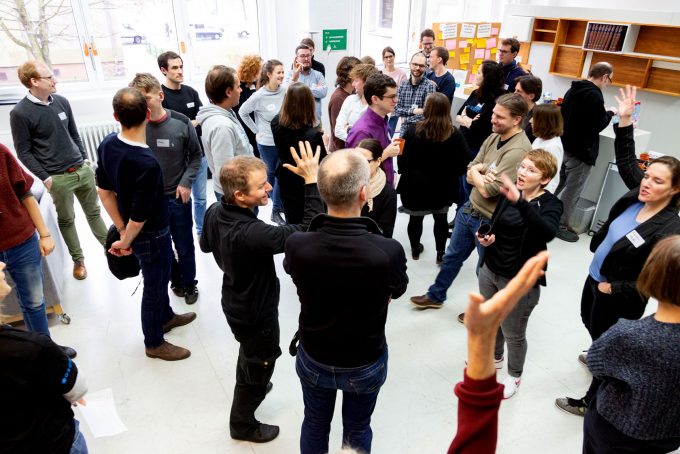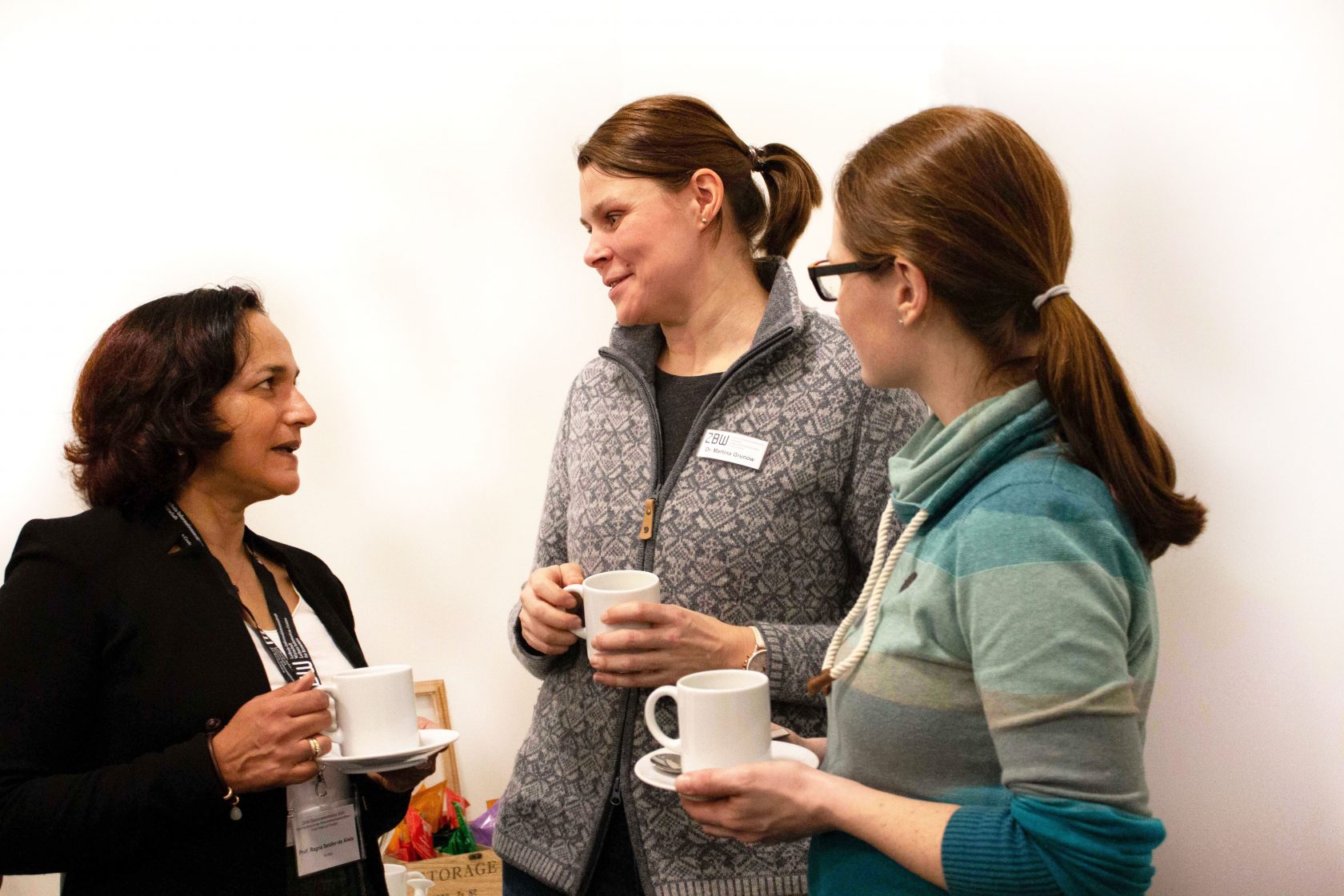
Workshop: How to Make Open Science Practice Attractive in the Economic Sciences
Despite general sympathy with the Open Science principles, they have not been widely adopted in the practice of economic sciences so far. So what makes Open Science attractive for economic researchers? And where do they need support? These questions were discussed with economists at a workshop of the ZBW in Hamburg.
by Dr. Christian Breuer, Dr. Tamara Pianos, Dr. Guido Scherp, Olaf Siegert and Dr. Doreen Siegfried
On 17 February 2020, a workshop “Open Science in Economics – From Politics to Practice” (German) with 12 researchers and teachers from the field of economics took place at the ZBW in Hamburg. Open Science in economic research was examined here in a very practical way in everyday life:
- Under what conditions is Open Science attractive for individual economic researchers and how could they imagine their personal commitment in practical terms?
- What information on the topic of Open Science would help individual economic researchers?
- How do economists assess the importance of Open Source in the economic sciences?
Using open practices for self-marketing in the science sector
At the beginning, Professor Isabella Peters, Professor for Web Science at the ZBW, explained the idea and significance of Open Science for scholarship in her talk (PDF, German). She presented some practical examples and stressed that factors for openness such as online accessibility, open access and data availability can have a positive effect on citations. In principle, she said, many practices of transparent science can also be used for the individual profiling within the research community. As tips for beginners, she listed:
- Create your own profile website.
- Publish your own publications in parallel on this very profile website, on your institution’s homepage or on a document repository.
- Think carefully about your concrete goal (for example, who do you want to reach and what effect should your research results have?
Open Science has arrived in the engine room of research
The role of Open Science in the economic sciences was also discussed at the annual conference of the learned society “German Economic Association (Verein für Socialpolitik)” in 2019 in a panel discussion. Dr Willi Scholz, science policy officer at the ZBW, presented the results of the panel at the workshop in Hamburg. According to him, the principles of open science have arrived in the “machine room of research” and a cultural change towards open science has begun, especially among younger researchers. The “business model of science” of the last five to ten years is therefore no longer sustainable in the future. Pre-registration and replication studies as well as new qualitative indicators are important fields of activity. The implementation of these measures is primarily a matter for science itself rather than for science policy.
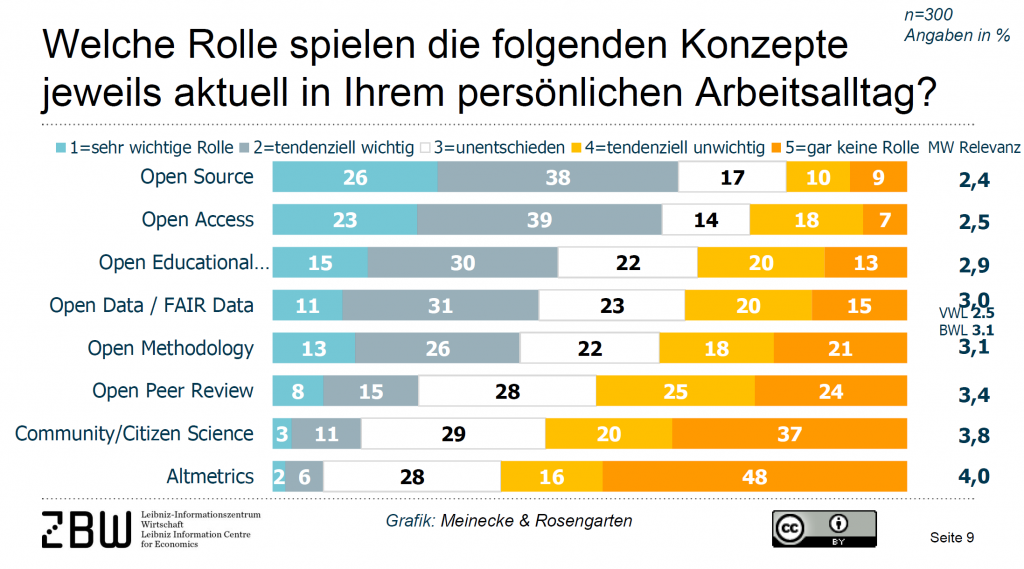 Extract from “Results of the survey on Open Science in economic research”, Dr Guido Scherp (PDF download, German)
Extract from “Results of the survey on Open Science in economic research”, Dr Guido Scherp (PDF download, German)Pre-registration and replication studies as well as new qualitative indicators are important fields of activity. The implementation of these measures is primarily a matter for science itself rather than for science policy.
Economists see great need for support
Dr Guido Scherp, head of the department “Open Science Transfer” at the ZBW, presented in his lecture (PDF, German) the first results of a new study on Open Science in economic research: Open Science is a familiar concept to economists, and there is broad agreement on general principles of Open Science. However, the application of concrete practices is rather limited due to lack of reputation, incentives, time and support. The study revealed a considerable need for support regarding concrete open science practices.
After the keynote speeches, the three central questions of the workshop were discussed in three parallel sessions.
What are attractive conditions for Open Science?
Open Science must be directly linked to recognition right from the first career steps (doctorate, habilitation). The practice of Open Science should become a career booster and not a stumbling block. At present, false incentives are created by appointment requirements such as the publication impact. Open Science practices, on the other hand, are only indirectly supported at best, for example when a high-ranking scientific journal requires that the data used be made publicly available. However, Open Access publications or replication studies, which can contribute to knowledge diffusion and enhance the credibility of empirical economic research, have so far been little rewarded. Sharing relevant research data also becomes an obstacle to an academic career if the data can subsequently be used by others for a high-level publication that might stand in the way of one’s own research. Since relevant rankings (such as the Handelsblatt ranking) focus exclusively on the reputation of journals, data sharing is not rewarded even if the corresponding article in which the data is described is frequently cited. Unless it is published in a high-calibre specialist journal, which is rather untypical for purely data-based articles and usually involves a considerable time delay. The circle of workshop participants agreed that doctorate regulations and appointment procedures must recognise the commitment to Open Science.
The good (international) visibility was highlighted as a central advantage of Open Science. In addition to personal visibility, it is also a matter of the increased visibility of (peripheral) topics.
Since cumbersome operating instructions or click paths are the death of all apps, the simple manageability of Open Science applications was also demanded.
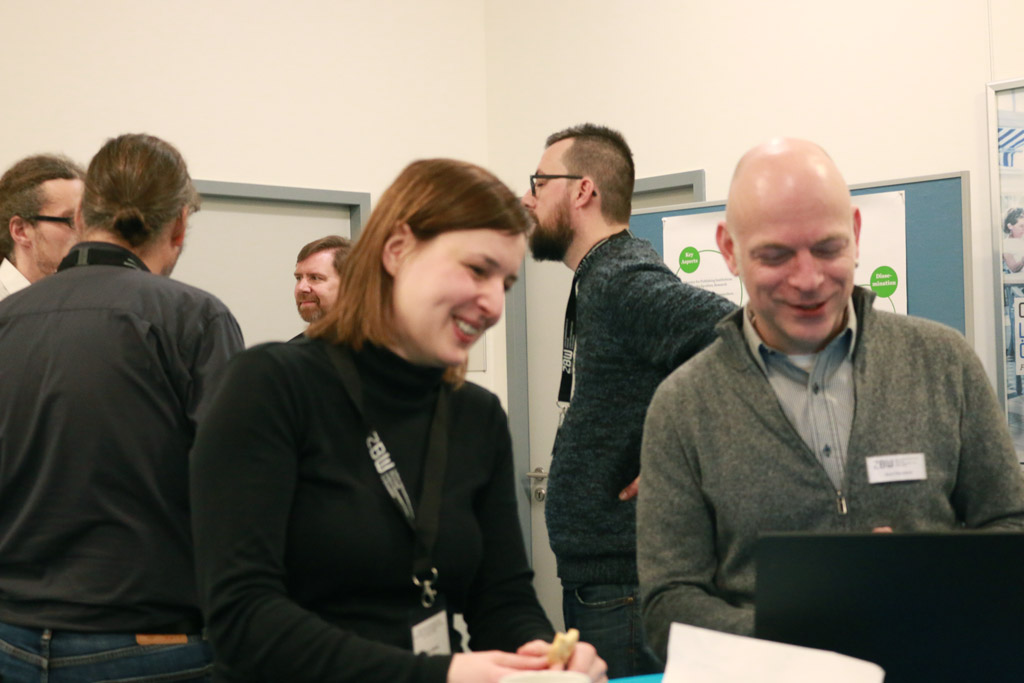
How can economic researchers get involved themselves?
The participants cited examples of the opening of science from their daily practice like open access to self-written textbooks, the publication of older own research data, or the sharing of own infographics from lecture notes or textbooks. A reminder (“Have you thought about your second publication options?”) could help to make everything freely available where there are no legal concerns.
What is helpful information about Open Science?
Basically, the workshop participants expressed the wish for a central information portal on the topic of “Open Science”, in which information on the relevant sub-areas is presented from the perspective of an author. Legal issues and questions relating to Open Access were mentioned as particularly relevant. In addition, it was pointed out that broad-based marketing of such an information portal was important.
How important is Open Source?
A high level of awareness for the use of open source software can be observed in the economic sciences. Classics are, for example, R and Python in data analysis. But software such as LibreOffice/OpenOffice (word processing), Inkscape (vector graphics) and Scribus (creation of posters) are also used as a replacement for commercial “standard software”.
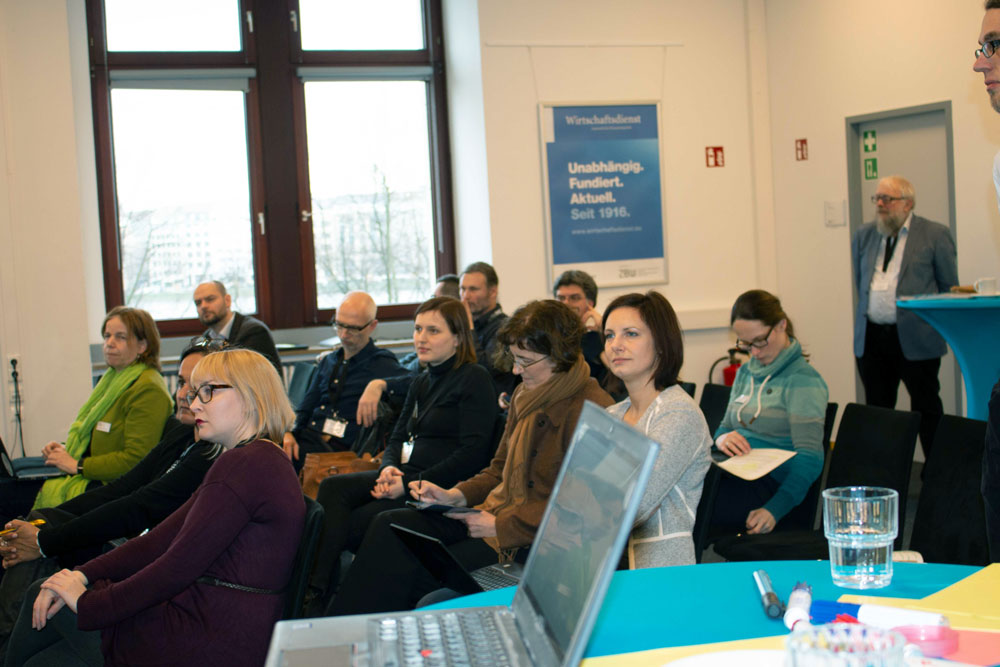
In addition to fast and free availability, a central selection criterion is that open source solutions are recognized and have a large user community. Especially in teaching, free and unrestricted access also significantly lowers the entry barrier for applications (in the case of R, for example). The fact that the use of open source solutions with open data formats serves to improve the replicability of research results is also seen as an advantage. At the same time, of course, codes and data from sources other than open source increase transparency and replicability.
Providing own Python software and R-scripts as open source, for example, is hardly practiced. At least at one of the institutions participating in the discussion round, researchers have a GitHub repository as a central version control system at their disposal.
Conclusion: Divide the Open Science cake into small pieces
Professor Klaus Tochtermann, Director of the ZBW, summed up in the wrap-up of this workshop that the term “Open Science” as an “umbrella” term was too vague and extremely difficult to convey in its entirety. It is associated above all with transparency. It is not really suitable for communication with people who have not been dealing with the topic for years. The many concepts that have been considered under the umbrella of Open Science, such as Open Access, Open Source, Open Educational Resources, must therefore be specifically singled out and better explained and linked to concrete problems such as the traceability and credibility of science.
Open Science as an overall concept is also too unwieldy in exchanges with research funding agencies or universities. It is therefore necessary to highlight individual, tangible aspects and to clearly communicate the advantages for individuals or institutions. For example, changing doctorate regulations to support open practices (such as the recognition of Open Access publications) could be a concrete step. Also conceivable are very concrete offers of support for researchers, including on questions such as “What software should I use in this specific case? How do I make my data usable again?”
Authors:
Dr. Christian Breuer ( Heads the journal editorship of the two economic policy journals Wirtschaftsdienst at ZBW), Dr. Tamara Pianos (Head of Information Provision and Access, ZBW), Dr. Guido Scherp (Head of the “Open-Science-Transfer” department, ZBW and Coordinator of the Leibniz Research Alliance Open Science), Olaf Siegert (Head of the Publication Services department and Open Access Representative of the ZBW), Dr. Doreen Siegfried (Head of Marketing and Public Relations, ZBW)
View Comments

Working Out Loud: How to Support the Learning Library
Working Out Loud is a method that promotes networking, collaboration and openness. It...

